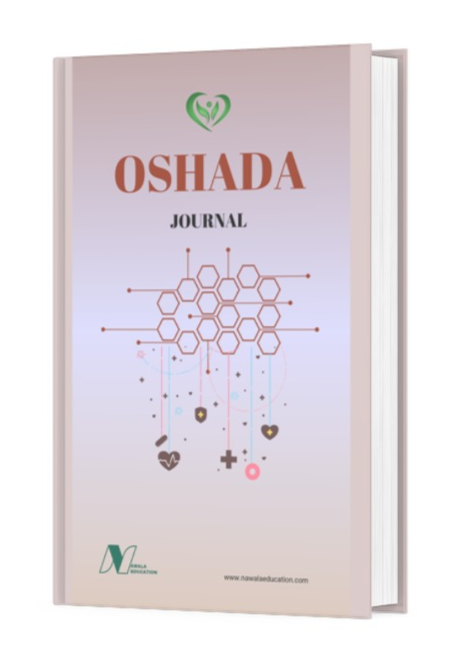Sugar Crash: Analysis of Diabetes Risk in Office Workers Due to Irregular Work Patterns and Eating Patterns
DOI:
https://doi.org/10.62872/tnkm3k33Keywords:
Diabetes-Risk, Irregular-Work and Eating-Patterns, Sugar-CrashAbstract
This study aims to analyze the risk of type 2 diabetes in office workers affected by sedentary work patterns and irregular eating patterns. Office work tends to require low physical activity, high work pressure, and inconsistent meal times, which can increase the risk of metabolic disorders, including diabetes. This study used a quantitative approach with a survey method of 150 office workers in urban areas, combined with in-depth interviews with 10 key informants. The results showed that 68% of respondents had irregular eating habits and 74% experienced moderate to high work stress. As many as 45% of respondents also showed blood sugar levels that were on the prediabetes threshold. Factors such as consumption of foods high in sugar and carbohydrates, lack of physical activity, and the habit of skipping breakfast contributed significantly to the increased risk of diabetes. These findings emphasize the need for interventions in the form of occupational health education, provision of healthy food in the office environment, and work time arrangements that support a healthy lifestyle. In conclusion, the lifestyle of modern office workers can be a serious risk factor for metabolic health, and requires more comprehensive preventive treatment.
Downloads
References
Amelia, R., Mardiyah, S., Wijayanti, W., & Kurniawan, S. S. (2025). Hubungan Pola Makan, Tingkat Stres, dan Durasi Tidur dengan Status Gizi pada Mahasiswa Tingkat Akhir: The Relationship between Diet, Stress Level, and Sleep Duration with Nutritional Status in Final-Year University Students. JURNAL GIZI DAN KESEHATAN, 17(1), 67-77.
Andriyani, A., Baroroh Barir, S. K. M., Gz, M., Musiana, S. H. I., MM, M. K., Irianto, S. K. M., ... & Gz, M. (2024). Kebijakan Dan Manajemen Program Gizi Masyarakat. Cendikia mulia mandiri.
Arbin, K., Frostenson, M., Helin, S., & Borglund, T. (2021). Explaining workers’ resistance against a health and safety programme: An understanding based on hierarchical and social accountability. Safety science, 136, 105131.
Ardiani, H. E., Permatasari, T. A. E., & Sugiatmi, S. (2021). Obesitas, pola diet, dan aktifitas fisik dalam penanganan diabetes melitus pada masa pandemi COVID-19. Muhammadiyah Journal of Nutrition and Food Science (MJNF), 2(1), 1-12.
Aziz, M., Alfian, R. M., & Alverina, C. (2024). Memahami Kesehatan Komunitas: Mengupas Determinan Kesehatan Untuk Mewujudkan Masa Depan Yang Sehat. Penerbit NEM.
Bailey, D. P., Hewson, D. J., Champion, R. B., & Sayegh, S. M. (2019). Sitting time and risk of cardiovascular disease and diabetes: a systematic review and meta-analysis. American journal of preventive medicine, 57(3), 408-416.
Bintang, R., Imsar, I., & Syarbaini, A. M. B. (2024). Analisis Efektivitas Kebijakan Work Life Balance Pada PT. Pelabuhan Indonesia Regional I Medan. Jambura Economic Education Journal, 6(1), 123-141.
Ghodeshwar, G. K., Dube, A., Khobragade, D., & Dube, A. H. (2023). Impact of lifestyle modifications on cardiovascular health: a narrative review. Cureus, 15(7).
Indra Panjaitan, P. (2024). Penerapan Edukasi Kepatuhan Diet Terhadap Kestabilan Kadar Gula Darah Pada Pasien Diabetes Melitus Dengan Peningkatan Gula Darah Di Puskesmas Alak Kota Kupang (Doctoral dissertation, Poltekkes Kemenkes Kupang).
Kurniawidjadja, L. M., Ok, S., Martomulyono, S., Susilowati, I. H., Km, S., & Kkk, M. (2021). Teori dan aplikasi promosi kesehatan di tempat kerja meningkatkan produktivitas. Universitas Indonesia Publishing.
Listyandini, R., Pertiwi, F. D., & Riana, D. P. (2020). Asupan Makan, Stress, dan Aktivitas Fisik Dengan Sindrom Metabolik Pada Pekerja di Jakarta. AN-Nur: Jurnal Kajian dan Pengembangan Kesehatan Masyarakat, 1(1), 19-32.
Maidartati, M., Hayati, S., Anggraeni, D. E., Irawan, E., Damayanti, A., & Silviani, D. A. R. (2022). Gambaran sedentary lifestyle pada remaja di SMA Kota Bandung. Jurnal Keperawatan BSI, 10(2), 250-265.
Moghetti, P., Balducci, S., Guidetti, L., Mazzuca, P., Rossi, E., & Schena, F. (2020). Walking for subjects with type 2 diabetes: a systematic review and joint AMD/SID/SISMES evidence-based practical guideline. Nutrition, Metabolism and Cardiovascular Diseases, 30(11), 1882-1898.
Mubin, M. R. (2025). Hubungan Pola Makan Dengan Status Gizi Pada Remaja (Di Pondok Pesantren Anwarul Huda Kabupaten Jombang) (Doctoral dissertation, ITSKes ICMe Jombang).
Ojo, O. A., Ibrahim, H. S., Rotimi, D. E., Ogunlakin, A. D., & Ojo, A. B. (2023). Diabetes mellitus: From molecular mechanism to pathophysiology and pharmacology. Medicine in Novel Technology and Devices, 19, 100247.
Pandongan, R. R. (2020). IDENTIFIKASI FAKTOR PENCETUS TERJADINYA HIPERGLIKEMIA BERULANG PADA PASIEN DIABETES MELLITUS TIPE 2 DI RS. TINGKAT III BRAWIJAYA SURABAYA (Doctoral dissertation, Universitas Muhammadiyah Surabaya).
Prakoso, A. S., & Churiyah, M. (2023). Strategi Peningkatan Keseimbangan Kehidupan Kerja Untuk Kesejahteraan Karyawan UMKM CV Jati Furniture Kemirahan Malang. Jurnal Manajemen Riset Inovasi, 1(2), 86-102.
Quan, M., Xun, P., Wu, H., Wang, J., Cheng, W., Cao, M., ... & Chen, P. (2021). Effects of interrupting prolonged sitting on postprandial glycemia and insulin responses: A network meta-analysis. Journal of Sport and Health Science, 10(4), 419-429.
Widiastuti, W., Zulkarnaini, A., & Mahatma, G. (2024). Review Artikel: Pengaruh Pola Asupan Makanan Terhadap Resiko Penyakit Diabetes. Journal of Public Health Science, 1(2), 108-125.
Yarmmani, Y., Anindita, S. M., & Hasanati, M. (2021, June). Employee Assistance Programme (EAP): Layanan Organisasi dalam Mengurangi Stres Karyawan pada Masa Pandemi COVID-19. In UNUSIA CONFERENCE (Vol. 1, No. 1, pp. 55-76).
Yuwanti, Y., Mulyaningrum, F. M., & Susanti, M. M. (2021). Faktor–faktor yang mempengaruhi stunting pada balita di Kabupaten Grobogan. Jurnal Keperawatan Dan Kesehatan Masyarakat Cendekia Utama, 10(1), 74-84..
Downloads
Published
Issue
Section
License
Copyright (c) 2025 Albert Manggading Hutapea, Kimberley Maharani Maulibulung Hutapea (Author)

This work is licensed under a Creative Commons Attribution-ShareAlike 4.0 International License.

This work is licensed under a Creative Commons Attribution-ShareAlike 4.0 International License.











